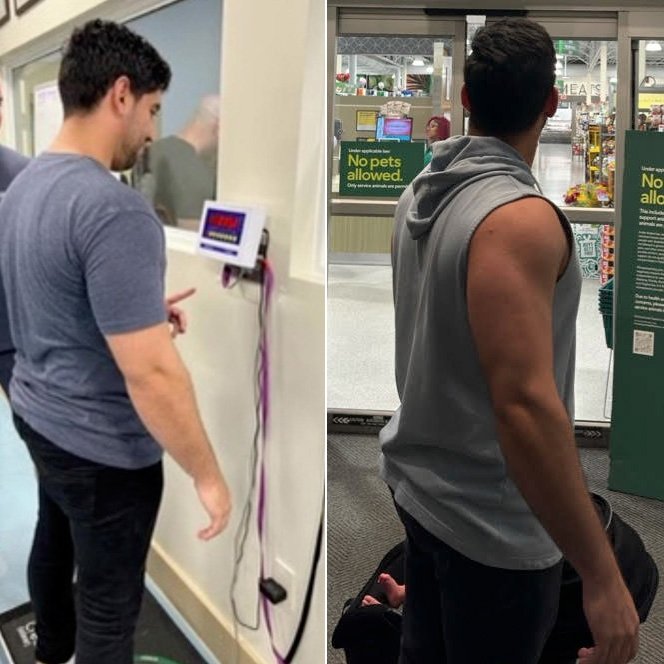Erectile Dysfunction Treatment
All of Renew Vitality’s treatment programs are custom tailored to the individual by an experienced medical expert in our nationwide network.
Table of Contents
There are several kinds of sexual dysfunction, and each one can occur due to various factors. But one of the most common topics involving sexual activity in recent years has been erectile dysfunction.
Of course, erectile dysfunction is a topic that is preferably never to be discussed, especially with your significant other. Whether it’s due to pride or even fear of rejection, many men would rather remain silent about their erectile complications. But although erectile dysfunction may cause some to question their sexual abilities and personal worth, the truth is that erectile dysfunction is actually quite prevalent among the male population.
What Is Erectile Dysfunction?
Erectile dysfunction (ED) is the inability to achieve and sustain an erection firm enough for sexual intercourse. Studies show that at least 1 out of every 10 men will experience erectile dysfunction at some point in their lives, but it is typically more common in men over 40. According to the Urology Care Foundation, ED affects at least 30 million men worldwide. However, even though ED is more common, it is not a normal health condition. Sometimes, erectile dysfunction can even be a symptom of an underlying medical problem.
Luckily, erectile dysfunction is a treatable condition and can be cured with the proper medical treatment and a few lifestyle changes. But before a physician recommends erectile dysfunction treatment, they will need to get an idea of what may be causing your ED to help provide the proper medications best suited for your needs.
Causes of Erectile Dysfunction
There are many causes of erectile dysfunction. Issues such as hormone imbalance, psychological problems, trauma, and even certain prescription medicines can lead to or even cause erectile dysfunction. However, there are so many different types of ED causes that physicians will typically separate them into physical and psychological categories.
Physical
Physical issues that occur with erectile dysfunction include:
Vascular complications
Several cardiovascular diseases such as heart disease, atherosclerosis (hardening of the arteries), and diabetes can block or reduce blood supply to the penis, making it more challenging to attain an erection.
Neurological complications
Certain diseases like diabetes and stroke can damage the nerve test in the impulses to the penis. In addition, trauma from an injury to the pelvic area and adverse effects from surgery can also cause damage to the nerves in the penis.
Prescription medications
Although prescription medications are necessary to treat certain medical conditions, they can also cause several unwanted side effects, including erectile dysfunction. In addition, as prescription drugs work to combat specific medical issues, they can also affect a man’s hormones, nerves, and blood circulation, leading to an increased risk for erectile dysfunction. The most common medications to cause ED to include:
- Antidepressants
- High blood pressure medicine
- Diuretics
- Chemotherapy medications
- Antiarrhythmics
Psychological
The mind is just as important as the body in stimulating sexual desire and optimal performance. When the mind is under psychological or emotional strain, the motivation and passion for sexual intercourse decrease dramatically. There are several emotional and psychological issues that can cause ED, which include:
- Depression
- Stress from work, home, or social conflicts
- Anxiety
- Lack of stimulation from the brain
Your physician will need to study your medical history to accurately determine if your ED is related to any prescription medications that you take or if it’s a physical or psychological problem before recommending treatment.
Does Low Testosterone Cause Erectile Dysfunction?
Although low testosterone hasn’t been shown to cause erectile dysfunction directly, it is related to other conditions that can lead to ED, such as atherosclerosis. During atherosclerosis, cholesterol plaques harden or narrow the lining of the arteries, making it difficult for strong blood flow to circulate throughout the body. As atherosclerosis occurs, low testosterone can also cause a decrease in other functions of the body, including the ability to have an erection. Clinical studies show that one out of every three men diagnosed with ED also had low testosterone, leading physicians to believe that low testosterone levels can play a part in erectile dysfunction.
Treatment Options for Erectile Dysfunction
There are several types of safe and effective erectile dysfunction treatment options for men diagnosed with ED. Most are non-invasive and are usually recommended first if the cause of ED can get treated without surgery. However, other methods may be used if non-invasive forms of ED treatment are ineffective. You can discuss the pros and cons of various treatment options with your physician to determine which one would be the most effective erectile dysfunction treatment.
Medicine
PDE Type 5 inhibitor drugs are designed to increase blood flow to help improve sexual function. These drugs are usually taken orally and can only be purchased with a prescription from your physician.
PDE Type 5 Inhibitors have been shown to improve erectile responses, and 7 out of 10 men typically report experiencing firmer erections after using PDE medications like Viagra and Cialis.
Unfortunately, diabetics and cancer patients have lower response rates after using PDE Type 5 inhibitors. In addition, men using medicines containing nitrates for heart conditions should also not take PDE Type 5 Inhibitors as the combination can also cause low blood pressure.
Hormone Therapy for Erectile Dysfunction
In studies, hormone imbalance has also been shown to affect ED. As men age, natural hormone production declines, leading to a decrease in sex drive and performance. The most common hormones to decrease are testosterone and human growth hormone (HGH). In these cases, hormone replacement therapy can usually help men restore their testosterone and HGH levels to optimal standards.
There are several types of hormone replacement therapy, but HGH and testosterone therapy are the two most commonly used in the medical field. Patients who utilize hormone replacement therapy for erectile dysfunction can get treatment in several different forms, including:
- Topical gels
- Pellets
- Creams
- Patches
- Injections
HGH Therapy for Erectile Dysfunction
As men age, human growth hormone (HGH) levels gradually decrease, reducing sexual stimulation and performance, thus contributing to erectile dysfunction. HGH therapy is a safe and effective treatment that can restore HGH in the body to its natural levels. Men typically report increased sexual desire and enhanced performance after a few weeks of HGH therapy.
Testosterone Therapy
When testosterone levels decline, it can also contribute to low sex drive; however, studies have found that adding testosterone can help erectile dysfunction. Testosterone therapy can improve sexual stimulation and boost erections.
Penile Therapies
Penile injection therapy is helpful in treating erectile dysfunction caused by nerve, blood, or psychological problems. The medication used in penile therapy allows for blood flow to the penis to create a firmer erection. By using a syringe, men can inject small amounts of prescribed medication into the erection chambers through the side of the penis and relax the blood vessels for more substantial blood flow.
Psychological Counseling
Psychological issues such as depression and anxiety can contribute to erectile dysfunction. However, counseling with a licensed sex therapist can help people to discuss their feelings that affect their sexual performance in a safe space, allowing them to accept and cope with sexual dysfunction.
Devices and Surgery
Surgical implants are the next step when PDE type 5 inhibitors, penile therapies, and sex counseling are ineffective in treating ED. Penile implants are surgical devices that are placed inside the body that allows patients with ED to create an erection spontaneously. There are two types of penile implants: semi-rigid and inflatable.
Semi-Rigid Implants
Semi-rigid implants are made of two bendable silicone rods that provide enough stiffness to the penis for sexual intercourse. These types of implants are also designed to allow for the normal range of motion and penile activity, such as urination and sex.
Inflatable Implant
Inflatable implants consist of fluid-filled cylinders that are inserted throughout the entire length of the penis and connected via tubing to a pump placed inside the scrotum. With inflatable implants, patients can engage the pump and send pressure to inflate the cylinders, making the penis firm enough for an erection. Using inflatable implants, men can create an erection and adjust its firmness and size for spontaneous sexual intercourse.
How much does it cost to cure erectile dysfunction?
The costs to treat erectile dysfunction may vary depending on the case, the method of treatment, and your healthcare provider. PDE type 5 inhibitors like Viagra and Cialis are usually cheaper and can range anywhere from $13 to $200, depending on your purchase. Penile implants are a bit more expensive and can go anywhere from $16,000 to $19,000 for surgery.
New Treatments for Erectile Dysfunction
As research progresses in the study of erectile dysfunction, several innovative treatments can help patients treat and even cure their ED. They include:
- Stem cell therapy
- Shockwave therapy
- Vascular stent
- Urethral suppositories
These treatments can provide alternative options for patients seeking an erectile dysfunction cure who are either unable to use PDE inhibitors or uncomfortable with penile injections. Consult with your physician about the possibilities and risks of alternative ED treatments to see if they’re right for you.
Our Advantages

FAQ
Does Testosterone Help With ED?
Yes, testosterone treatment has been shown to help men who have erectile dysfunction due to low testosterone levels.
What Is the Latest Treatment for Erectile Dysfunction?
Shockwave therapy is the latest cutting-edge treatment for erectile dysfunction. By applying low-intensity sound waves to enhance blood flow and induce the growth of new blood vessels, shockwave therapy can help produce firmer penile tissue.
Is Erectile Dysfunction Treatment Covered by Insurance?
Most insurance companies have policies that will cover the initial diagnosis and any medically necessary treatment for erectile dysfunction. Medicare also has a national policy that covers penile implants for erectile dysfunction, but coverage may vary depending on your locale.
Can Erectile Dysfunction Be Cured Fully?
Yes, erectile dysfunction can be cured, depending on the underlying cause. Some cases of ED can be cured more easily if the cause is psychological or behavioral in nature, while other cases may require long-term or even indefinite treatment. But with proper diagnosis, support, and therapy, most cases of ED can be permanently corrected.
What Is the Fastest Way To Cure Erectile Dysfunction?
Optimizing your heart, vascular, and psychological health while utilizing other medical therapies can help speed up the effects of ED treatment and eliminate erectile dysfunction faster.
What Hormones Help With Erection?
The most important hormone involved in erection is nitric oxide, which is found stored in cells called cavernosal nerves. These nerves provide blood to your penis and facilitate an erection by relaxing and dilating blood vessels. Without sufficient nitric oxide, you won’t be able to maintain an erection. Other hormones that affect erections include testosterone, dihydrotestosterone (DHT), oxytocin, serotonin, and endorphins; all of these can influence how your body responds when stimulated sexually.
Our Sexual Health Programs are designed to help renew your health and wellness. Contact us today to unlock your full potential.

Testimonials
FEELING RUN DOWN?
TAKE THE LOW-T QUIZ TODAY
Our men’s clinic can restore your physiology, change your body composition and optimize your health to slow down aging and prevent health complications caused by low testosterone.
Take back your life and become a better you today!











